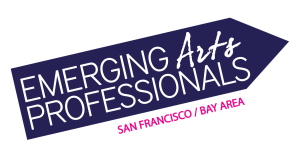The Civics of Cultural Sustainability
“Sustainability” is one of the more versatile words you’ll hear these days. In several conversations there could be several different trustees of any sustainability movement. You might hear an environmentalists referring to eco-friendly practices to save the planet; philanthropists and foundations talking about the future funding strategies of a cultural or charitable activity, or; what I’ve been focusing on, our ability to preserve the integrity of distinct cultural contributions in spite of extreme external forces.
By looking at popular culture, it’s apparent to me that you don’t need a unique product or talent to succeed in entertainment today. You don’t have to be able to sing to be heard- autotune; you don’t need to play an instrument to make music- gadgets; and songwriting must be at an all-time low. So it’s important not to lose sight of the many local artists, who are keeping all forms of art and culture alive and well.
Artists will always do what they do, but the way cities promote cultural engagement is through policy. Policy can’t control what a person makes as art, but it can dictate what receives public support. Oakland public policy experiences a disconnect between written implication and potential to produce a favorable result. For many, many years, there has been no comprehensive policy, or sufficient political will to invest in the most bountiful, naturally occurring resources that Oakland has- the arts. The arts are now often referred to in terms of art and “neighborhood beautification”- huh!?!? The arts in Oakland are fundamentally an economic and community development issue, and with plenty of proven examples of how to increase economic activity through investments in the arts, we need to force the change we believe in.
With recent city budget proposals, which eliminate 100% funding for the arts, it’s clear that new and enterprising policy strategies need to be developed and implemented now to fuel Oakland’s new-found cultural mecca-tude, lest it be lost. If there will be no money, then we should certainly demand a plan for the future. Let me be clear though- I am in no way suggesting a protracted “strategic planning process” which yields exactly what I got from the last three- a stack of papers. (You can view the last Task Force Report on the Arts and Economic Development at the SOA site).
Actually, the Cultural Funding Program, while of significant benefit to some organizations in the city, directly benefits only a small portion of the broader arts community. Most people involved in the arts have never, and will never receive any public support. So If current funding for the arts is to be severely reduced or suspended, the opportunity is now to develop a new, restructured, more efficient and effective model that supports all segments of the arts community and promotes economic development as well as cultural enrichment.
New policies should focus on broadening access to cultural opportunities and encouraging public/private partnerships to create jobs and revenue in the creative sector. The policy reform framework should include a number of key components. Reforms to the permitting, planning and zoning processes to expedite housing, venues, and special event projects would generate significant impact. Economic development policy reform would provide incentives and business assistance to arts-related businesses. Organizational restructuring in city government could create an inter-agency collaboration between CEDA, Redevelopment, Visit Oakland, Public Works, Health and Human Services, Recreation and the Police Department. Such inter-agency collaboration would realize efficiencies in service delivery and budget allocation, thereby accomplishing more with less.
Oakland is in a time of possibility. There are major challenges, but we’ve also got some major arts policy implementation opportunities available. Now is the time to mobilize and engage in the process- on boards, commissions, informal groups and as individuals. Public forums on the arts by the Emerging Arts Professionals, Support Oakland Artists, the Oakland Cultural Trust, as well as others, are a place to start. Get involved and get it moving!
##
Randolph Belle has enjoyed 20 years in the arts, business and nonprofit management in Oakland. He’s started several commercial art and design companies and served in a wide variety of civic and service capacities. Randolph is the founder and Executive Director of Support Oakland Artists, a nonprofit art and community development corporation that works to enhance local artists’ ability to thrive and fuel economic development throughout the region. Randolph has served as the President of the Board of Directors at Pro Arts Gallery in Oakland and Vice Chair for the City of Oakland’s Cultural Affairs Commission. Randolph is currently on the board of the Museum of Children’s Art, the Oakland Film Society, the Advisory Board of the Crucible and is the Education and Workforce Development Director for the Oakland Media Center.
Don’t miss Reframing the Arts : Advocating for the Public Culture at Oakland Museum of California (OMCA)on Saturday, April 16! Register here.



